George Saliba
Islamic Science and the Making of the European Renaissance
MIT Press
327 pages, 9 x 6 inches
ISBN 978 0262195577
This book started almost ten years ago. Initially, I wanted to know what were the conditions under which a civilization could produce science afresh.
I was trained in ancient Semitics, and mathematics, but I was always interested in these rumors that the general reader knows about, that the great invention of science was a really Greek project. And that everything else is either a shadow or a continuation of the classic antiquity.
Growing up, you assimilate these paradigms. You begin to think that these are the normal things. But then, trained in mathematics, and beginning to read a little bit of what was produced in the Islamic civilization, in science, I grew curious. I grew curious because I began to note that some of the science produced was not a shadow of the Greek project. It was more re-focusing of light, a new way of looking at things, which the Greeks did not know.
I began to also wonder about a fact that many a student of history and general reader would know. That there was this period of fantastical effervescence in the classical Greek tradition, say from the 4th century BC to the 2nd century AD. All the major names that we can think of happen to be in this period, all the major classics, in every discipline you can think of, from Plato to Aristotle to Ptolemy to Euclid to Diophantus to Galen to Dioscorides. And all comes to an end by the 2nd century. Then nothing happened. And then, all of a sudden, we begin to hear, in the 9th century, of the crazy caliphs of Baghdad who are spurring this and that, translating this and that, incorporating all of the Greek material.
To me, this sounds totally ahistorical. Politicians that I know, or that I read about, usually do not do that. Why would the rulers of Baghdad in the 9th century be any wiser than any of today’s politicians? I wanted to know what triggered that interest in Greek science, after a lapse of seven hundred years. What were the social, economic, the political and personal motivations of the scientists who produced this modern science?
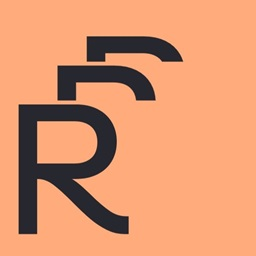
This explains the translation of Greek texts much better than the dream of a caliph to know what Aristotle had said. It is the one who gains employment from what Aristotle said, and from what Euclid said, and from what Diophantus said, and from what Galen said, who pushes for their translations.
The first two chapters of the book propose a completely new reading of this period. I don’t believe that things drop from heaven. That all of a sudden one caliph or one man can make a difference of reviving the whole culture. Cultures are not defined like that.
The Islamic culture’s definition of itself as Islamic was something new. This is the first time that we have a religion undertaking the project of creating a political entity, and defining itself in political terms. It is a political-religious environment, inspired by the Qur’an and by the life of the Prophet, that begins to define the culture. The Prophet speaks of himself as a continuation of the lines of prophecy known from the Old and New Testaments. He sees himself as the culmination, not as a rebellion.
At its zenith the Islamic Empire was the largest empire that human civilization had even known. Its geographical expansion was immense. And it came as an heir to two earlier empires, the Roman Empire, and the Sasanian Empire.
Administering an empire is not a joke. And this was an empire plagued with fundamental problems. On the one hand, it had to stay very close to the inspiration of the religious morality, and the religious context of life, and on the other hand, it had to act, on everyday basis, enacting the political system.
Running an empire means that a political leader is responsible for the wellbeing of his subjects, for the economy, for the defense, for public health. I realized the immensity of the difficulty that a caliph would have. Would he get to think, all of a sudden, about this ancient Greek text that would be nice to translate? Of course, not. But this was the realization that gave me the clues as to how to read the texts that recorded the history of that empire.
Once you look at the social and economic conditions, on the ground, you begin to see that there were serious needs for harmonizing the administrations of two previous empires. They even spoke two different languages, none of them Arabic. The Byzantine Empire conducted its business in Greek, the Sasanian empire in Pahlavi (ancient Persian).
Translating the bureaucratic procedures of the earlier empires into the new language was the first step in the act of administering the empire.
The mere harmonizing of the terms for the new bureaucracy would include the subdivision of terrain for collecting taxes. And in turn this would include elementary mathematical and astronomical treatises on surveying and the setting of calendars and such things as length of daylight times of rising and setting of stars, etc. Think also about elementary medicine, the need to take care of public health. There was, in other words, need for sophisticated science. Science was needed for building a better empire than the one defeated.
I used to read before about this son of a caliph who aspired to become a caliph, but who didn’t get to become one, and who, to compensate himself, began to be interested in alchemy. (In fact, the first texts that we hear were being translated into the Arabic from Greek were the alchemical and astrological texts.) In our traditional understanding of alchemy, this fellow was trying to make gold. So you would smile about this silly dream of this guy who did not make the caliphate and who didn’t make the gold either.
But it turns out that he was interested in the real proportion of gold and other alloys that you have to combine to create a unit of currency. You cannot establish a new empire without a coin. And in this period, the 7th century, the 8th century, the only people who knew how to do this were in alchemy. They knew how to measure, with minute weights. This explains the interest in alchemy, and why alchemical texts were translated.
The longer the stability period, the higher the production of science. Times of turmoil are not very conducive to science. Abdulmalek Ibn Marwan ruled for about twenty years, from 685 to 705. Throughout this period, all bureaucratic transactions had to be conducted in Arabic. Which meant that the bureaucrats either had to be born into the language or had to learn the language. And this also meant that the bureaucrats who had been in place before the new empire were no longer needed.
Sociologically, if a group of bureaucrats is laid off, no longer needed in the empire, as a group, what would their natural reaction be? You have few choices: You can go into oblivion. Or you can specialize into what the new empire requires and come back with a much more sophisticated knowledge.
This is indeed what happened. The next generation of those who were discarded from the bureaucracy of the empire came back. You begin to see their names: the private physician of the caliph, the private astronomer of the caliph, the chief of this and that. It is this competition with the ones who took their fathers’ jobs that perked these individuals to master the more sophisticated sciences.
And here is a motivation as to why the major Greek classical texts that were forgotten for seven hundred years had to be picked up. Because now you have a new competitive environment, you come back with the new competitive knowledge to be able to compete with the people who replaced your father in the bureaucracy.
This explains the translation of Greek texts much better than the dream of a caliph to know what Aristotle had said. It is the one who gains employment from what Aristotle said, and from what Euclid said, and from what Diophantus said, and from what Galen said, who pushes for their translations. These people, once they armed themselves with these master texts, they could gain employment at a higher level in the bureaucracy than the ones that replaced their fathers.
The first two chapters of the book tell the story of the birth of science as a response to the sheer needs of the new empire, and explain why this science flourished; they take account of the competitive conditions that the new empire created. It is all economic, political, to the bone.
Religion remains important. Islam, as a new religion to the empire, spurred also new questions that were never anticipated in the Greek tradition.
For example, as a Muslim, you have to pray, five times a day. And you have to pray in a specific direction to Mecca. Both of those are simple things. But they are very complicated if you take them seriously. Because one of those five prayers is defined by the length of your shadow on the ground. Originally, the time for the afternoon prayer was supposed to commence when your shadow was equal to your height and to terminate when your shadow was equal twice to your height. It was during that range that the afternoon prayer was supposed to be performed. That was good enough in Mecca, and maybe up to Medina. But when you reach Damascus, there will be many times, many days per year when your shadow will never be equal to your height, no matter what time of the day it is. So when do you start prayers?
This very mundane concern triggered a study of shadow lengths at various latitudes. Mathematical geography became then a necessary component of prayers. The minute you go into mathematical geography, you just made a big entry into astronomy. You are learning where is the sun every day of the year, where am I on the globe vis-à-vis the position of the sun, how does the sun cast the shadow, how is the shadow related to my locality. All of those questions are excellent introductions to astronomy. Is there still a question as to why you would need astronomical texts?
Two, no Greek ever dreamt of praying in a specific direction to a specific city. Islam requires that you have to pray in the direction of Mecca. We operate in the paradigm of flat maps. When I ask my students where Mecca is, from our position in New York City, nine out of ten say “southeast.” Because they look at the flat map. It comes to them as a shock that, if you are in New York, Mecca is really northeast. That’s why the airplanes to Europe fly over Boston. But to come to such a realization you need sophisticated spherical trigonometry, you need laws of trigonometry that the Greeks did not need. Hence a new discipline was born.
The second part of the book deals with the impact of all of this material on Europe.
In the 12th and 13th centuries there was a massive translation movement in Europe, from Arabic into Latin. Traditionally, this is seen as the time when Europe was recapturing its own roots so to speak. It is said that the Greek texts could not be found, that’s why they were translated via Arabic.
But it is not true that those texts could not be found. They were actually found and translated directly from Greek later on, in the 15th and the 16th centuries. The question is, why did they translate them from Arabic when the same text existed in Greek?
The essence of my argument is that the European scientists used the bricks that were already formulated in the Islamic civilization to construct their very own and new science. It does not mean that the Renaissance is not a brilliant renaissance. That is indeed one of the most creative periods in history.
But note that the method of translation changed after the 14th century. In the 15th and 16th centuries, the Europeans were no longer treating those Arabic texts in the same way they were treated in the medieval period. Instead of hiring translators, the European scientists learned Arabic themselves.
Indeed, why should one assume that the Renaissance scientists were any less intelligent than our modern scientists? If you ask a contemporary scientist about what was said in physics fifty years ago, the answer would be that all of that is obsolete. Today’s scientists do not read what was written in their fields fifty years ago. They only go for the latest. Why should a Renaissance scientist go for a text written in Ancient Greece a thousand years before, when the same had been discussed, criticized, updated, in the Islamic domain?
The second part of the book deals with such issues.
I use the example of Copernicus, who literally picked up from Arabic texts almost all of the mathematical theorems he needed for the construction of his astronomy; these theorems were not found in the classical Greek texts.
When you mention Copernicus everybody gets a little jumpy, because we attribute to him the discovery of the earth moving around the sun. That Copernicus did not get from any Islamic astronomer that I know of. No Islamic astronomer I know of would believe in heliocentrism, or would allow a cosmology that is heliocentric. None of them, including Copernicus, had the ability to explain the physical structure of the universe—that explanation depended on an essential law that was yet to be discovered by Newton, a hundred years after Copernicus.
Yet, to explain how a planet moves around the sun, Copernicus needed the mathematical mechanisms that accommodate the movements of the planets. He needed a predictive model, to tell where the planet would be seen from the earth, at such and such a time. If you ask the question of where the planet will be seen from the earth, then you are already solving the problem for an earth-centered universe. And all of those answers were already found in the Islamic domain.
The question remains. Why did Copernicus do that? There are many people who answer that in so many different ways. But none of them is really cosmologically convincing. Because you would have to account for the force that holds the planets attached to the sun. Even Kepler, who comes after Copernicus, who should really be called the father of modern astronomy, even he was thinking that planets are attracting each other like magnets. Kepler used magnetism as a metaphor of that attraction because he still did not yet have Newton’s universal law of gravitation.
On the other hand, if you only think of it mathematically, it is irrelevant whether the center of the universe is at the sun or at the earth. This is how all the mathematics that was developed in the Islamic domain could be simply turned around and made heliocentric by Copernicus.

If you ask a contemporary scientist about what was said in physics fifty years ago, the answer would be that all of that is obsolete. Today’s scientists do not read what was written in their fields fifty years ago. They only go for the latest. Why should a Renaissance scientist go for a text written in Ancient Greece a thousand years before, when the same had been discussed, criticized, updated, in the Islamic domain?
Why did this scientific activity not continue in Islam? I say a few things in the book about this concept of “decline.” People speak of rise and fall, of cyclical movement, for example about the rise and fall of the Ottoman Empire, or of the Roman Empire. I don’t give much credence to this view. Yes, the Roman Empire did end, but after one thousand and five hundred years. Decline is not about a cycle as such. It is when the historical conditions change that all things change—including the fortunes of empires.
If you look at the map of Europe in the year 1400, all of the trade routes crisscross right to the heart of what was called the Islamic domain. No European trader could conceive of making any money without paying part of it to a tax collector somewhere in an Islamic port or Islamic city. That map looks very different in the year 1550. All trade routes have shifted: they now go over the Atlantic. It was with the accidental discovery of the New World that the Islamic domain literally lost the primacy of trade.
So the silly questions of what “went wrong” in Islam and why did the Muslims who had the science “miss it” are answered by another question, “Why and how did Europe actually produce science?”
That will be my next book. In the same way I addressed the mechanism of producing science in the early Islamic civilization, now I want to address the mechanism that translated that wealth, and the economic conditions, on the ground, into the production of science in Europe. How did the Europeans produce science that could not be imitated by the Islamic civilization—as well as by the civilizations of China and India, which are not Islamic?
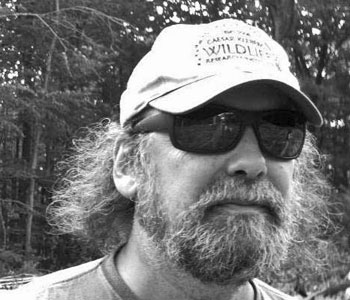
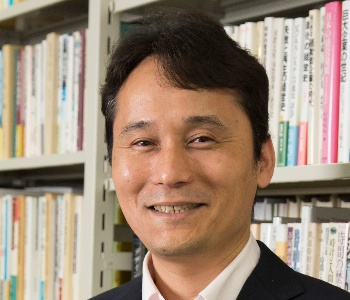
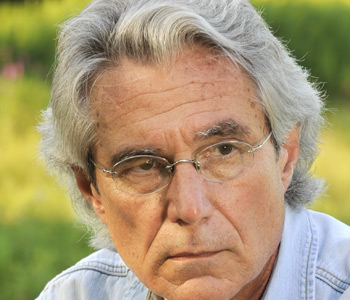
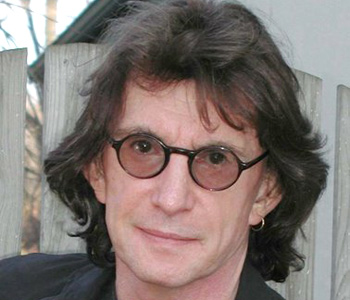
We don't put paywalls. We don't distract you with ads. We don't sell your data.
Please help to keep this running!